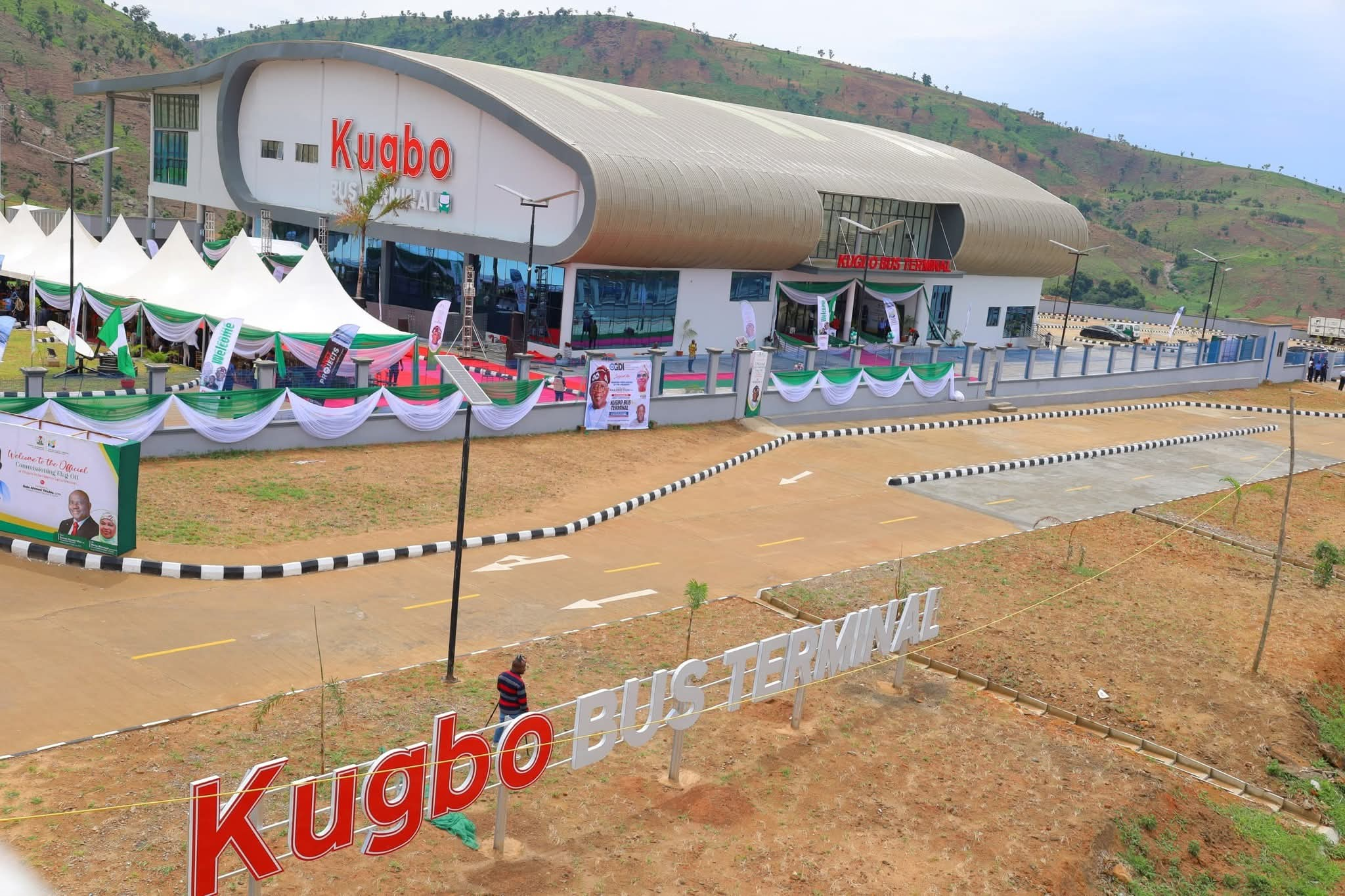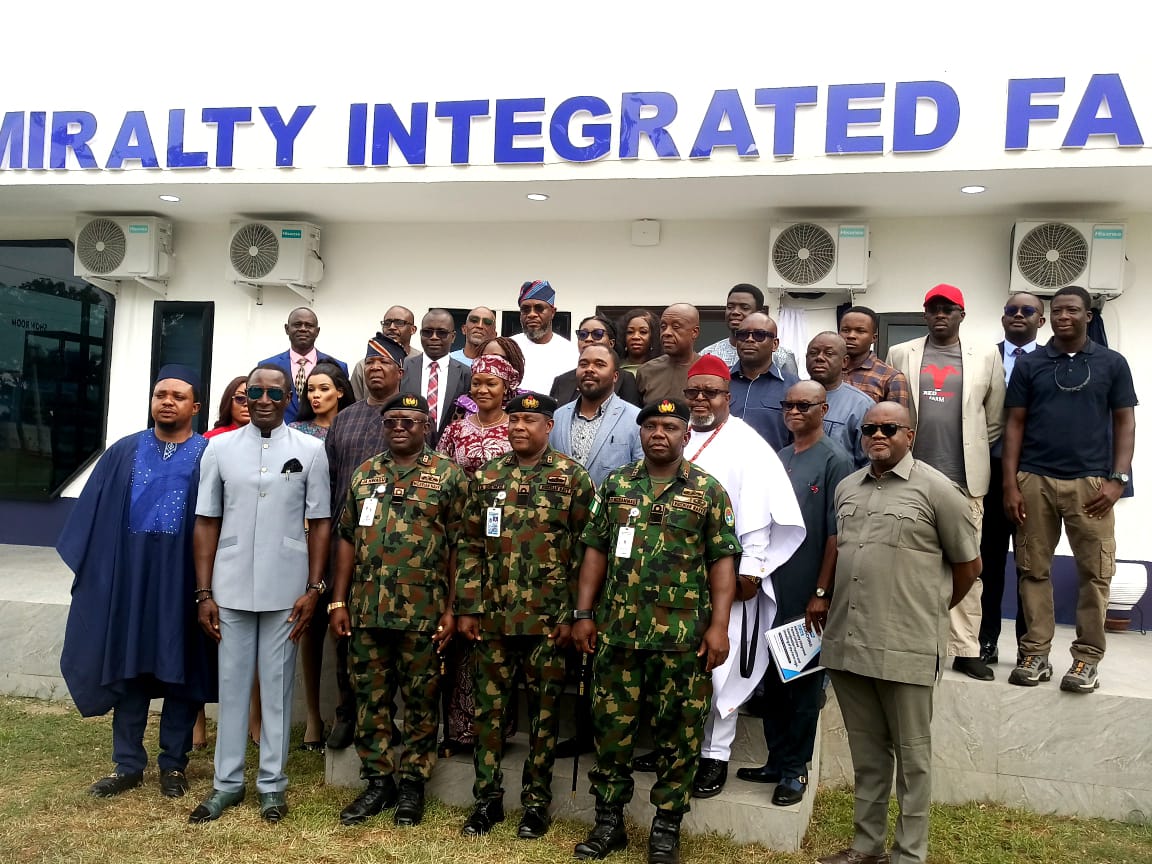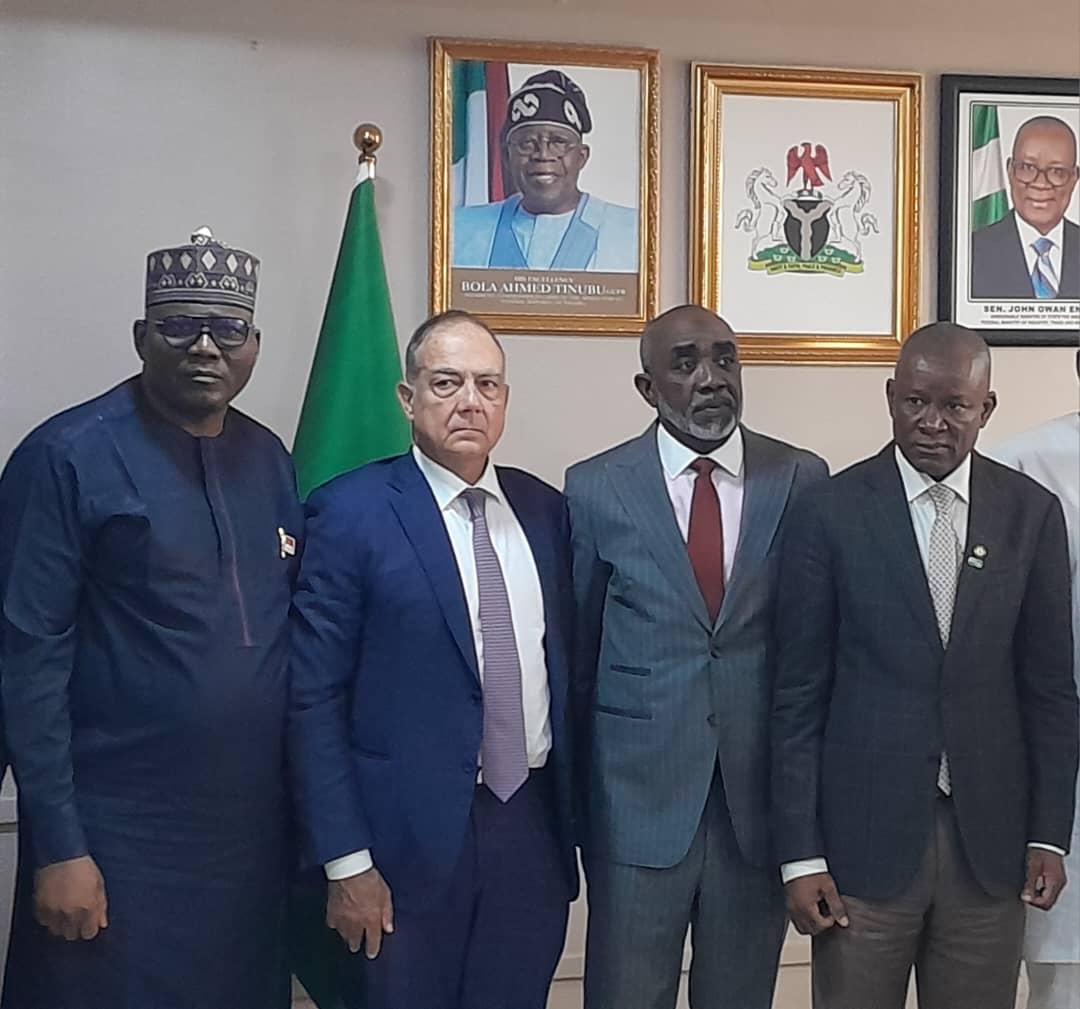FCT bus terminals ‘ll boost security in public transportation – Tinubu
By Philip Yatai
President Bola Tinubu says the newly constructed bus and taxi terminals by the Federal Capital Territory Administration (FCTA) will address the insecurity associated with public transportation in the territory.
Tinubu said this while inaugurating the Kugbo Bus and Taxi Terminal, as part of activities to celebrate his second year in office.
Represented by Senate President Godswill Akpabio, Tinubu said that the terminals align with the development goals of transit-oriented cities equipped with smart mobility, compact living spaces and parking management.
“We heard your concerns; we understood your fears and we acted. With your compliance, you will no longer suffer from one chance by the roadside,” he said.
Tinubu added that the terminals, a meticulously planned transportation hub, would add to the numerous jobs being created by his administration in different sectors.
He explained that the terminals would equally boost trade, bring orderliness, safety and bring comfort to commuters.
“At the swearing-in of my government two years ago, I swore to uphold and defend the constitution of the Federal Republic of Nigeria and its people.
“With the security reports on the several menaces of one-chance robberies, kidnapping, and thuggery that characterised public transportation in FCT, I directed the FCT Minister, Nyesom Wike to put in place measures to address that situation.
“Here and now, you will find an organised system where vehicles and drivers are properly identified and registered, significantly reducing the risk associated with the normal informal transportation.
“The presence of advanced security features, including comprehensive CCTV surveillance, ensures that your journey begins and ends in a secure environment,” he said.
He said that the Kugbo bus terminal alongside its counterpart in Mabushi and that of the Central Business District under construction, would contribute to his government’s determination to turn around the fortunes of the people.
This, according to him, is being achieved through improved connectivity, reduced travel time and increased economic growth thereby creating opportunities.
“The decision of my administration to prioritise high-impact transportation infrastructure, among which is this bus and taxi terminal, is based on the undeniable fact that no nation around the world has been recorded to have made any noticeable progress without modernisation and expansion of its critical public mobility and public utilities.
“As encapsulated in the “Renewed Hope Agenda” of my administration, my solemn promise to rebuild and revitalise our nation’s infrastructure, enhance the lives of Nigerians, create an environment where security and efficiency become the order of the day, are being fulfilled, one step at a time.
“You will all agree with me that the Mabushi and now Kubo Bus Terminals meet with global principles of sustainable urban development in the area of transportation.
“This will automatically erase the ugly experiences of chaotic public transportation in our capital city, previously fraught with challenges.”
He commended Wike-led FCT Administration for yet again making his government proud by judiciously utilising scarce public resources towards initiating and completing within record time, this iconic public transportation infrastructure.
He equally thanked the National Assembly for support so far, which has enabled his administration to fulfil its renewed promises to Nigerian citizens.
In his remarks, Wike thanked Tinubu for supporting the ongoing transformation in the FCT, including public transportation through the construction of bus and taxi terminals.
He said that with the bus terminals, residents do not need to be waiting on the road side for vehicles, exposing them to once chance criminal operators.
“Here, when you come into this place you are sure of the vehicle; you are sure of the driver.
“If you enter a vehicle here, the driver is known. So, if anything happens, we will be able to know that this passenger entered so so and so vehicle, and the driver of the vehicle is also known.
“You have time to unwind, go to the cinema if you want. The loading bays are there, and that is what we see in civilized countries,” Wike said.
He said that terminals would be handed over to the private sector to operate, adding that additional terminals would be constructed in Gwagwalada, Bwari and Kuje. (NAN)
Edited by Abiemwense Moru














